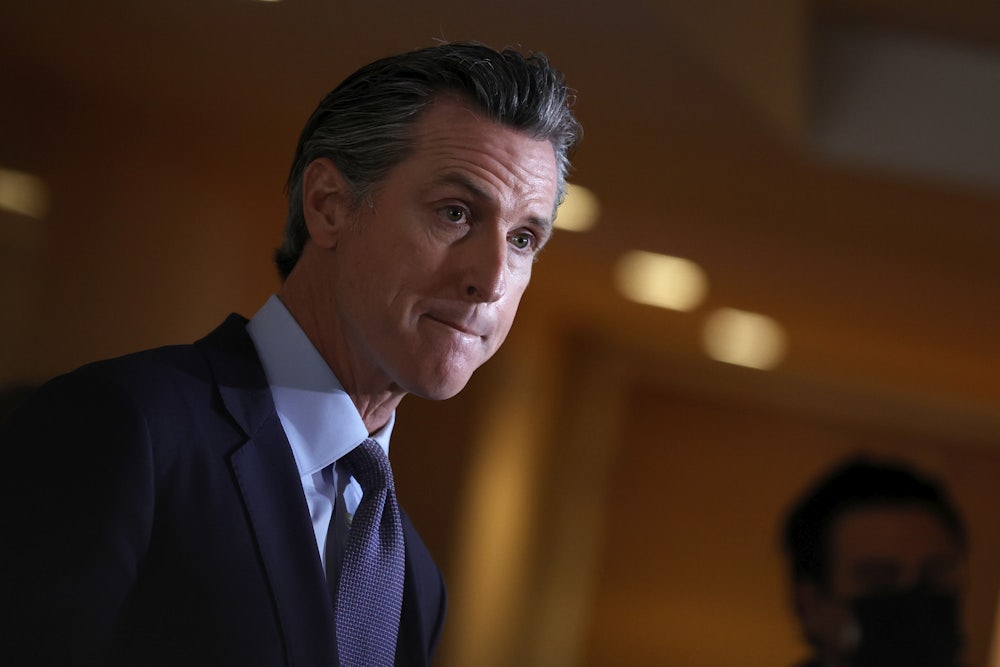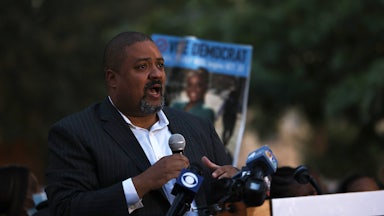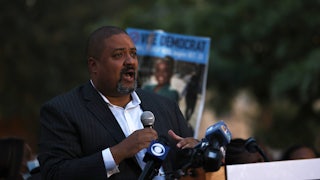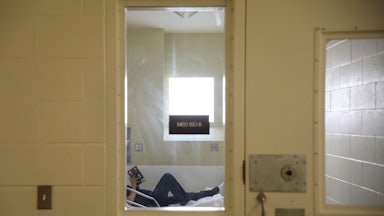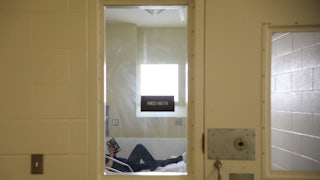Last week, Gavin Newsom made a callous decision that deserved far more backlash than it received: The California governor determined that 77-year-old inmate Sirhan Sirhan, who has been incarcerated for the 1968 assassination of Robert F. Kennedy for over half a century, has still not yet been locked up long enough. “After decades in prison, he has failed to address the deficiencies that led him to assassinate Senator Kennedy,” the governor wrote. “Mr. Sirhan lacks the insight that would prevent him from making the same types of dangerous decisions he made in the past.”
Newsom’s decree rejected the assessment of the state parole board, which recommended Sirhan’s release after a lengthy evaluation by designated clinicians determined that he no longer posed a threat to society. But a parade of self-important boomers disagreed, whipping themselves up into a froth about how Sirhan should rot: “Even if it could be proved that Sirhan no longer posed a threat to others, he must never be released because our justice system demands the strictest punishments for the most atrocious crimes,” law professor Lawrence Tribe wrote. “There is no doubt in my mind that political assassination stands nearly alone in its threat to the foundation of society—it is a crime against our republic as much as against an individual,” he added. Kennedy’s 93-year-old widow and seven of his children followed suit, fueling an organic pressure campaign to which Newsom gladly acquiesced.
But make no mistake: The call Newsom made was not in service of justice, and it certainly wasn’t a lofty affirmation of democratic ideals. It was a cynical way for an elected official to shake low-hanging fruit from the “tough on crime” tree and pander directly to rich, aging voters, whose sole interest in Sirhan dying in prison is based in gauzy nostalgia for a political moment they’ve long since betrayed.
Sirhan’s ghastly crime famously took place just after Bobby Kennedy had won the California Democratic primary election, a victory that likely would have catapulted him to front-runner status for the 1968 Democratic nomination. With a platform emphasizing civil rights, anti-poverty, and ending the Vietnam War, Kennedy seemed poised to cobble together a coalition not unlike Barack Obama’s, uniting young, progressive white professionals and African Americans. But Christian Palestinian refugee Sirhan Sirhan had other plans; when he shot and killed the candidate at the Ambassador Hotel in Los Angeles, history’s spin instantly arced in a different direction, one that precluded the vision Kennedy’s campaign had been pitching.
Though the tragedy is typically described—as it is by Newsom and Tribe—as a straightforward act of political terrorism, it was arguably driven by something more mundane. Sirhan acted alone, having apparently become obsessively fixated by a delusion that Kennedy himself was chiefly responsible for Palestinian oppression. During his 1969 trial, even the prosecution’s psychiatrist admitted the defendant had “substantial mental illness” and didn’t seem to understand the gravity of the charges that had been leveled against him. In the years since, Sirhan has often claimed to have no memory of the incident. While he was initially sentenced to death, this was commuted in 1972 to life imprisonment—a move urged by Kennedy’s surviving brother Ted, who emphasized Bobby’s opposition to capital punishment.
For his mourners, then and now, Bobby’s death abruptly foreclosed on the possibility of a far brighter alternate timeline: one that might have ended the carnage in Vietnam far earlier, better facilitated desegregation efforts, and built upon the welfare programs put forth during the Johnson administration. But that’s not what happened: The assassination delivered Nixon and Watergate, prolonged the war, and exacerbated social strife—eventually giving rise to the conservative counterrevolution, Reagan, the disemboweling of the safety net, Bushes 1 and 2, the Iraq War, and Trump.
Bobby Kennedy thus lives on in the minds of his admirers as the avatar of a path not taken; the last opportunity the country had to avert the bad things that happened after he was cruelly plucked from this plane. Naturally, this is an undeniably rose-colored belief, one that persists because it has the luxury of not being tested or tainted by reality. How a Robert Kennedy presidency might have played out is unknowable. While I can certainly agree that Kennedy surviving and getting elected in 1968 would have likely sparked outcomes preferable to the ones we got, the dreamiest vision of his potential elides other tidal forces that shaped our politics since then—in particular, the rise of neoliberalism in the 1970s which, propelled by capital’s backlash against labor, tore the social fabric of the country more thoroughly than Nixon managed.
Could Kennedy have arrested these trends? That’s not a question we can answer. We know that in the years following Kennedy’s murder, the Democratic Party continued its realignment, letting unions die and shedding working-class voters as it began catering more and more to urban professionals—a major swath of Kennedy’s base.
Meanwhile, the rise of inequality beginning in the mid-’70s corresponded to a rise in crime, triggering a backlash that politicians hoped to tap into by expanding policing and prisons—a project that can’t simply be blamed on Republicans. Far from front-loading mercy, as Ted Kennedy testified his slain brother would have done, Democrats in the 1990s went out of their way to indulge in tough-on-crime playacting. Even before the notorious 1994 crime bill that laid key groundwork for mass incarceration, presidential candidate Bill Clinton famously attended the execution of the lobotomized Ricky Rector to outflank his primary opponents on punitive ruthlessness.
That Clinton’s death-row mise-en-scène is remembered as a savvy campaign strategy and not as a hideous display of raw political cynicism does much to explain Newsom’s refusal to offer parole to a man who’s served a half-century for his crime and has little left to do on this earth besides die. The casual condemnation of Sirhan to even more prison is a political play for older voters, who happen to be both more conservative and more inclined toward the carceral state. By parlaying Kennedy hagiography (and cherished memories of being 22) into cheap accolades that cost him precisely nothing to grab, Newsom will bank some political capital. Meanwhile, a near-octogenerian will languish in prison for no good reason, instead of living out the remainder of his infirm years at his brother’s home in Pasadena. Exactly zero Californians have been made safer as a result: Study after study shows that people nearly always age out of committing violent crimes, particularly by their late thirties—only half the age that Sirhan is now.
Whatever prison is for, if it can’t be accomplished in 53 years, then it can’t be accomplished at all. It’s hard to understand how those who might vehemently disagree with this can square that belief with a fealty to Bobby Kennedy’s espoused ideals. His public commitments to expanding civil rights, fighting poverty, and ending state violence were simply not compatible with Gavin Newsom’s idea of justice, which seems mired in the nostalgic notion that Sirhan single-handedly decimated the only off ramp from an ultimately doomed road in American life. He didn’t fatally shoot just one man, he shot an alternate reality, in which the Trump presidency, among other things, never happened. As Tribe put it, “But for his vicious act, the rest of U.S. history would’ve been different.”
Sirhan Sirhan killed an important person, a horrific crime that demanded he be held to account. But history doesn’t work the way Tribe and Newsom imagine. Sirhan, suffice it to say, was not history’s only actor; neither, for that matter, was Bobby Kennedy. There was a whole nation filled with people who were free to steer us from, and into, the path Tribe so deeply regrets that we took. Somehow that’s been forgotten. But here’s the price of forgetting: Sirhan the man must pay for the crimes of the mythical future-killing Sirhan of an aging generation’s imagination, and that retribution must never end—forcing one more person to grow old and die in a prison system that’s done far more to erode democracy than to defend it.
